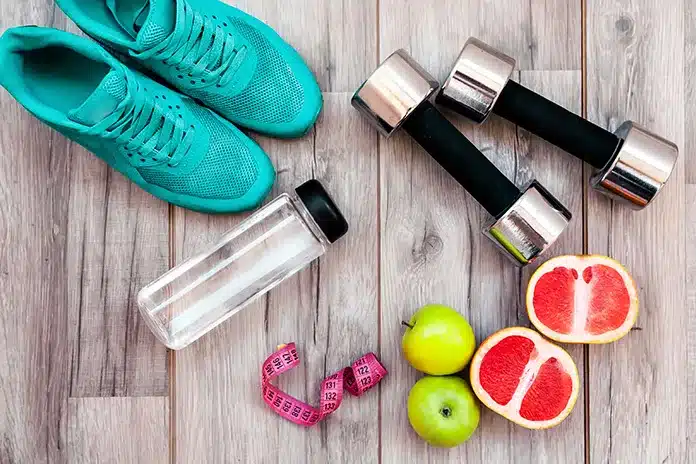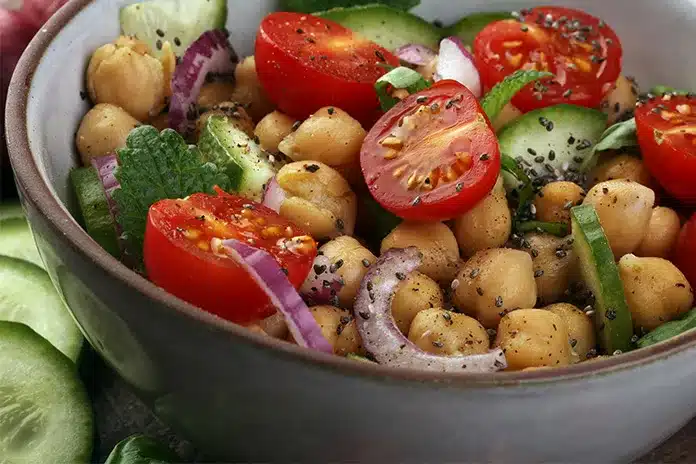How much protein do you need? Fresh Fitness Food nutritionist Georgia Head schools us on the difference between what’s actually healthy and what’s simply a marketing-fad
Protein – it’s one of the three macronutrients the body needs to sustain life, via healthy functioning of physiological processes, and repair and maintenance of our cells and tissues. Made up of both non-essential (can be synthesised in the body) and essential (cannot be synthesised in the body and must be obtained in food) amino acids, protein provides the building blocks for muscle. In the absence of essential amino acids from our diet, it would be impossible to build, repair or maintain muscle mass.
For years, we’ve observed companies capitalising on the importance of protein in the diet, from the introduction of popular diet models such as The Zone / Dukan / Paleo Diets to the steady growth of the supplement industry. In fact, since you can now find protein-fortified breads, crisps and waters, it doesn’t come as too much of a surprise that protein is the fastest growing food supplement on the market.

With such a vast amount of conflicting opinions and information available online and so many products on offer, it can be difficult to know how to distinguish between what is healthy and what is merely a trend. Here to help you navigate through the minefield that is nutrition (more specifically macronutrients and, more specifically still, protein) is Fresh Fitness Food expert nutritionist Georgia Head.
So how much protein do you need?
Try to be objective about what you hear and see when it comes to the marketing of protein products and avoid falling for the mistake of thinking protein will make you more muscley. Whilst protein is involved in the repair of the cells and tissues, you may already be getting enough from your regular diet to perform this function. To crack down on how much protein we really need.
The food first approach
Whilst there is a time and place for protein supplements, and they should not be ousted altogether, as with all macro- and micro-nutrient intake the priority should be to obtain adequate intake through a healthy and balanced diet. Real, wholesome food should always come first and supplements should not be used as a substitute. Some examples of good quality protein sources include chicken, quinoa, tofu, salmon and beans. To increase your intake you should first look to do so by having slightly larger portions of protein with each meal, or by adding on an additional protein-rich meal or snack each day.

The recommended dietary allowance (RDA) is 0.8g per kg of body weight, but this is a guideline for populations rather than individuals, meaning it is a very general guideline.
Active individuals may require in the region of 1.2g – 2.0g per kg of body weight. For highly active people and athletes, this figure can exceed 2.0g per kg of body weight. It is vital to note there is a large body of research into protein requirements, much of it providing conflicting results. Therefore, guidelines should be used as guidelines and not strict rules. Bottom line, requirements are highly individual as what works for one person may not for another in similar circumstances.
Be prepared
Choosing the food first approach may take a little bit more time and planning (instead of just reaching for a shake), but the benefits of a healthy well-balanced diet are worth it. If time to prep is your issue, we at Fresh Fitness Food can help you out by removing the need to plan, shop, cook or clean.
Know your supplements
If you’ve taken a hard look at your diet and are still struggling to obtain enough protein, be informed when it comes to your choice of protein. There are a huge number of online retailers all offering a variety of products, each with different offers and ‘special’ ingredients to reel customers in. There lies a question – do people know what they’re taking, why they’re taking it, and do they know the difference between whey isolate, casein and micellar whey? For most, the answer would probably be a no. This is worrying as people are potentially misinformed and aren’t certain about what they are consuming each day. Always look for mystery ingredients including sweeteners and thickeners. As is often the way, the fewer ingredients the better. Usually the better quality supplements are more expensive as when it comes to supplements you get what you pay for.







